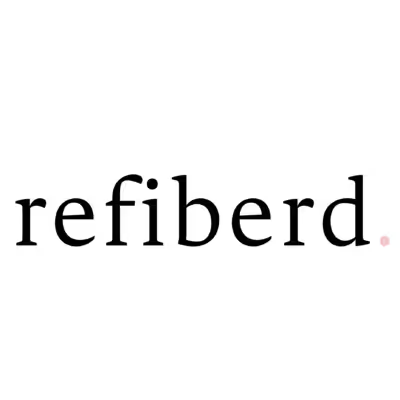
Refiberd envisions a future where textile waste no longer burdens our planet, enabling a thriving 100% circular economy in fashion. By harnessing advanced AI and hyperspectral imaging technology, we are transforming how the world identifies and processes textile fibers, creating pathways to a cleaner, more sustainable industry.
Our mission centers on pioneering innovative, precise, and scalable solutions that dissect complex textile compositions in real time. Through deep integration of AI with material science, we empower fashion and recycling industries to drastically reduce waste, improve resource efficiency, and drive environmental stewardship at scale.
Committed to advancing both technology and sustainability, Refiberd is building a future where discarded textiles are meticulously recovered, reused, and renewed—setting new standards for circular fashion and responsible production worldwide.
Our Review
We'll be honest—when we first heard about Refiberd, we thought "another sustainability startup with big promises." But after digging into their tech, we're genuinely impressed. This California-based company isn't just talking about fixing fashion's waste problem; they've built something that could actually do it.
The Tech That Made Us Pay Attention
Refiberd's approach is surprisingly clever. Instead of relying on slow, destructive chemical tests, they use hyperspectral imaging combined with AI to identify what's in textile waste. Think of it like giving a computer superhuman vision that can see the chemical fingerprint of every fiber.
What caught our eye is the precision—they can detect trace amounts of problematic materials like spandex below 2% composition. That's the kind of accuracy that makes or breaks real-world recycling operations. Plus, it's non-destructive and fast, which means it can actually scale.
Why This Matters Right Now
The textile industry throws away enough material to fill a garbage truck every second. Most recycling efforts fail because sorting mixed fabrics is incredibly difficult and expensive. Refiberd's system can sort unsorted textile waste with over 90% accuracy, potentially diverting 70% of textile waste to high-value recycling.
We've seen plenty of "circular fashion" pitches, but this one has the technical depth to back up the claims. The fact that H&M Foundation gave them their Global Change Award in 2023 tells us industry leaders are taking notice too.
Who's Behind the Vision
Co-founders Sarika Bajaj and Tushita Gupta bring serious technical credentials from Carnegie Mellon, with expertise spanning AI and textile engineering. It's refreshing to see a women-led team tackling such a massive industrial challenge with this level of scientific rigor.
Their $6.8 million in funding from backers like eBay Ventures and True Wealth Ventures suggests investors believe in both the team and the market opportunity. That's not small change for a four-year-old startup in a traditionally conservative industry.
Feature
AI-powered hyperspectral imaging for textile fiber identification
Non-destructive, fast detection of fiber composition and contaminants
High accuracy (>90%) in sorting textile waste by color and material
Detects trace amounts of problematic materials below 2% composition
Supports scalable, cost-effective textile recycling and sorting








